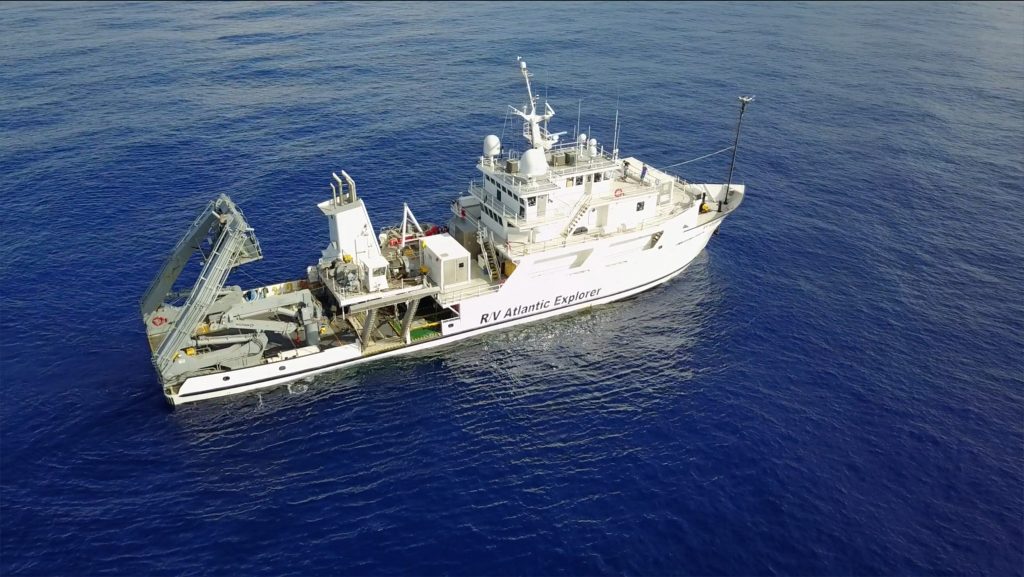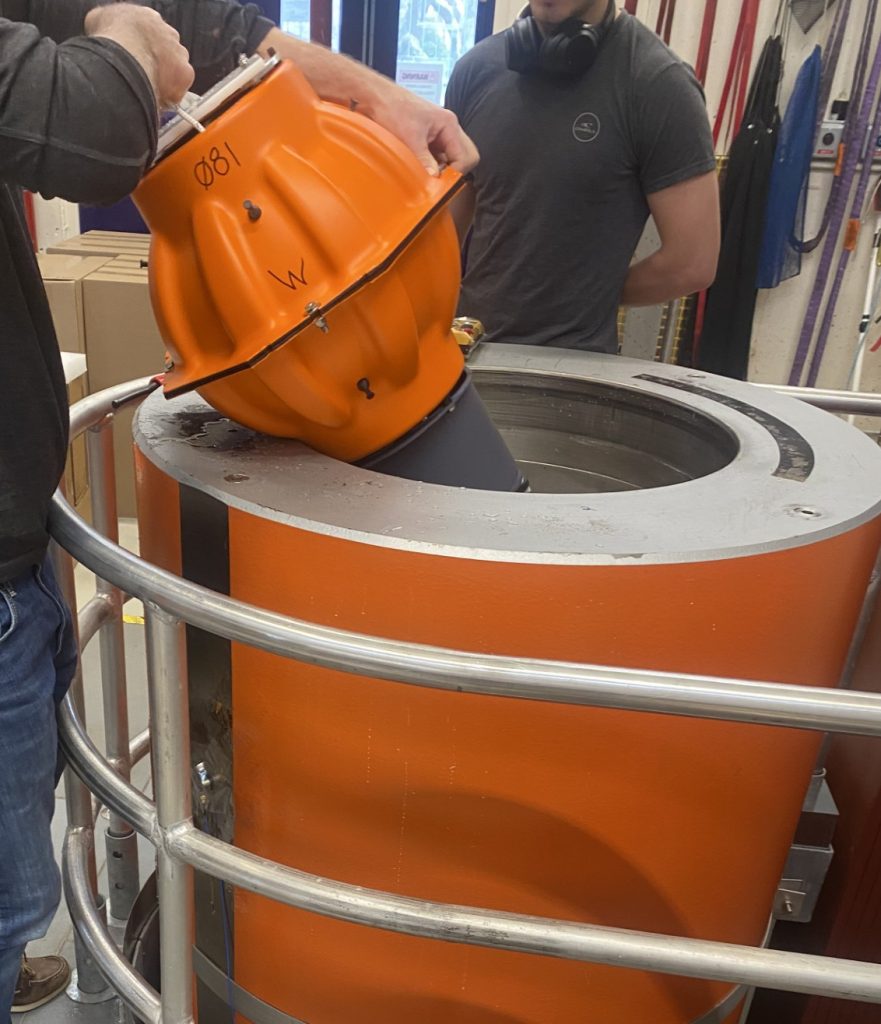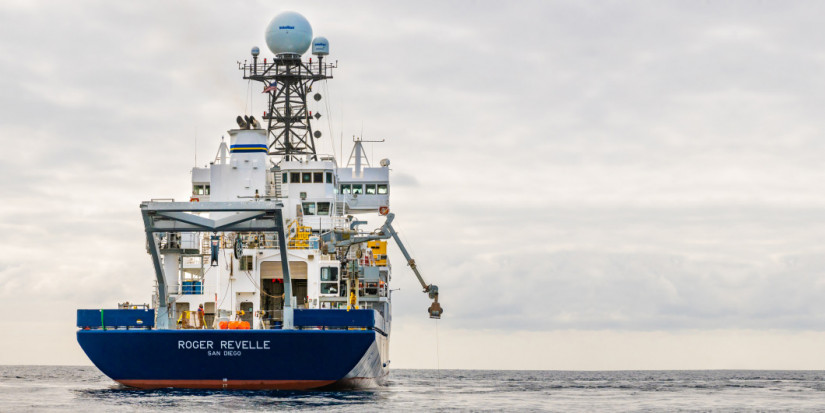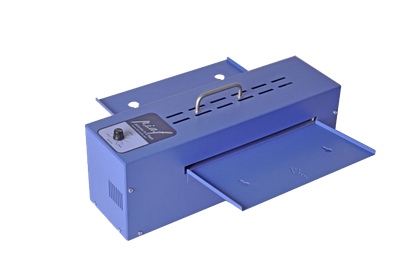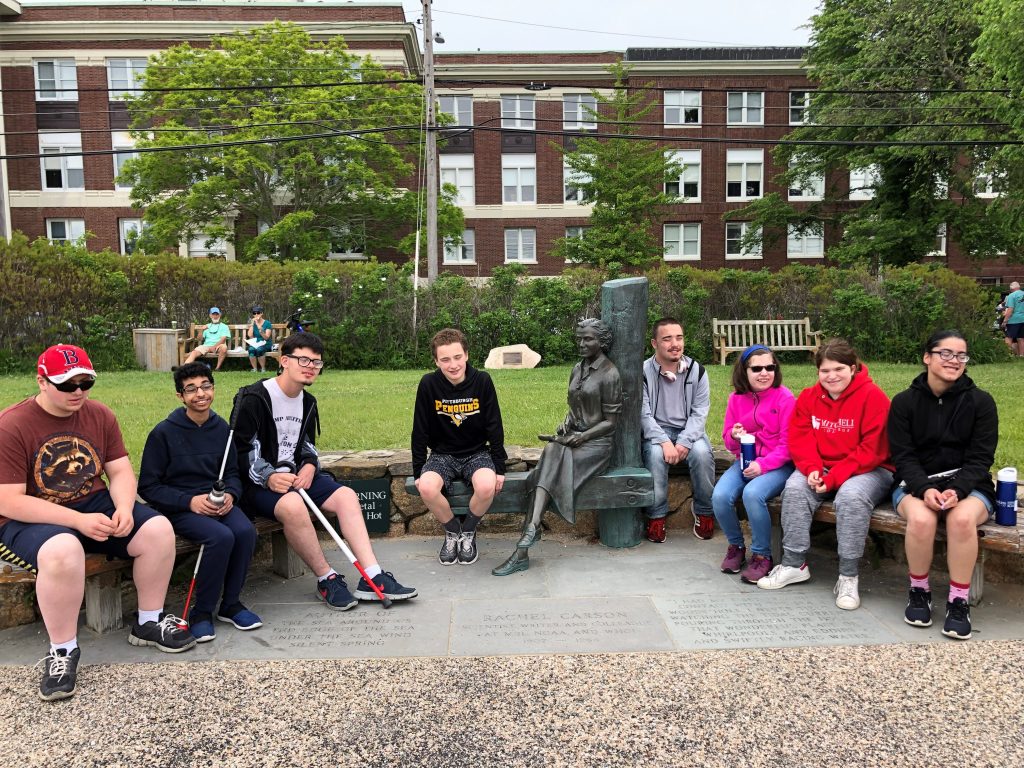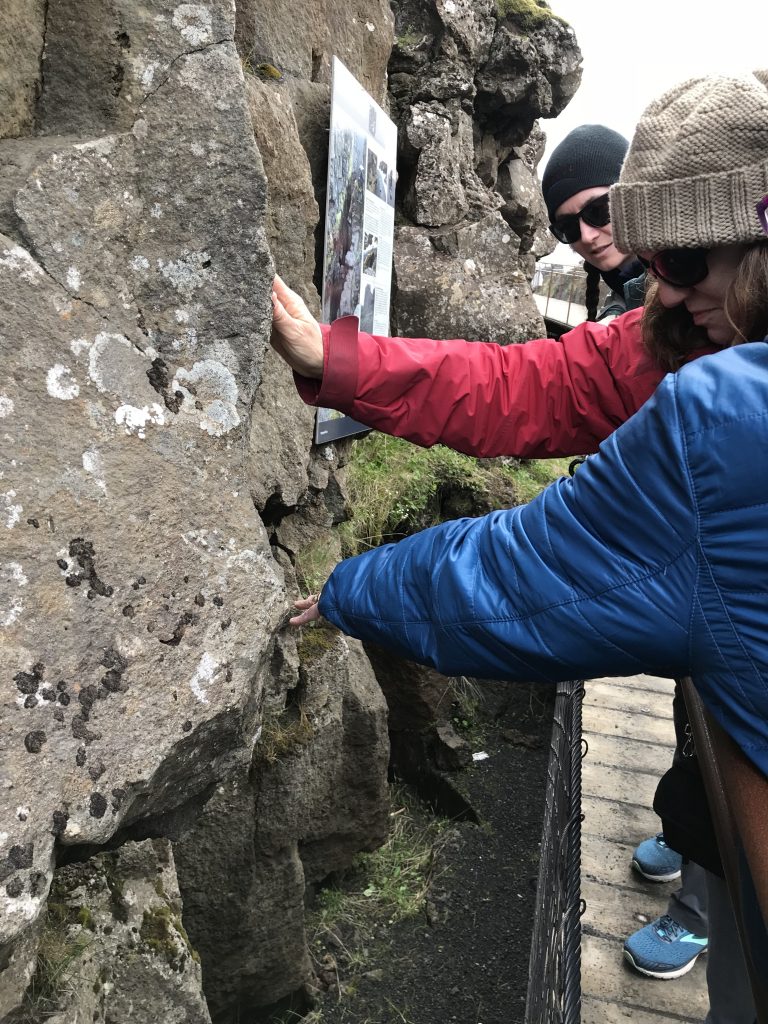Research Expedition Postponed – Now What? R/V Atlantic Explorer to the Rescue!
As I write this post, I’m sitting in my office in Clark Laboratory at Woods Hole Oceanographic Institution. I’m not supposed to be here! I am supposed to be on the R/V Roger Revelle, dropping deep drifting floats in the Deep Western Boundary Current east of the Grand Banks of Newfoundland, and documenting our progress…
Preparing the Deep Floats
By Amy Bower On the upcoming oceanographic expedition on R/V Roger Revelle, we will be releasing nearly 50 deep drifters in the Deep Western Boundary Current that snakes around the edge of the Grand Banks of Newfoundland and Flemish Cap (located southeast of the Canadian province of Newfoundland). This current is very deep, between 3000…
Time to Head Out to Sea Again
By Amy Bower The ocean below the sunlit layer holds many mysteries. It is a deep, dark and cold environment–so incredibly different from the environment in which we humans live. But it by no means is a static or stagnant place—in fact, there are currents of moving water that play an important role in Earth’s…
How to make accessible graphics using a PIAF machine
By: Anna Pinckney, Access/Research Assistant in the Bower Lab A PIAF (Pictures in a Flash) machine uses heat-sensitive paper to create tactile graphics. This paper is the same size as regular US printer paper, but it feels slightly thicker. To use the PIAF machine, the first step is to put the heat-sensitive paper in a…
Adventures of a Blind Woman Navigating the Oceans of STEM Professionals Part 4: Solutions and Giving Back
Here is part 4, the final installment, of the text of a presentation Amy gave at the National Federation of the Blind Annual Convention in Orlando, Florida (#NFB24) on July 6, 2024 This experience made me realize, a little late maybe, that what I really needed to be on a level playing field with my…
Adventures of a Blind Woman Navigating the Oceans of STEM Professionals Part 3: Navigating a Sea of Obstacles
Here is part 3 of the text of a presentation Amy gave at the National Federation of the Blind Annual Convention in Orlando, Florida (#NFB24) on July 6, 2024 As a scientist with first low, and then almost no vision, I’ve had to navigate a sea of obstacles to be the oceanographer I wanted to…
Adventures of a Blind Woman Navigating the Oceans of STEM Professionals Part 2: What does a physical oceanographer do?
Here is part 2 of the text of a presentation Amy gave at the National Federation of the Blind Annual Convention in Orlando, Florida (#NFB24) on July 6, 2024 So, what do oceanographers do? Many think we only study what are sometimes called, charismatic megafauna: Whales, dolphins, sharks. But Oceanography is actually a vast field…
Adventures of a Blind Woman Navigating the Oceans of STEM Professionals Part 1: Growing Up
Here is part 1 of the text of a presentation Amy gave at the National Federation of the Blind Annual Convention in Orlando, Florida (#NFB24) on July 6, 2024 These are words you never want to hear on a ship at sea: “Attention, all personnel. Return to your staterooms immediately and lock all doors and…
An Exciting Day of Science for Perkins Outreach and WHOI
A thick fog blanketed Woods Hole on the morning of Saturday, June 1st as my husband David and I drove to WHOI to meet eight students riding down from the Perkins School for the Blind in Watertown. I was reminiscing about where I was this time last year—on a plane heading for Iceland for a…
A Multi-sensory Iceland Visit
After pulling into Reykjavik, Iceland on June 24, formally bringing to a close our research cruise to the Irminger Sea, I had a chance to do some touring around the city and nearby natural wonders with shipmates Heather, Hilary and Alison. We rented a car for the day, and our first stop was a national…
About Amy Bower
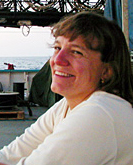 Amy Bower is a physical oceanographer at the Woods Hole Oceanographic Institution. She has been chasing ocean currents in the Atlantic and Indian Oceans for over 25 years, primarily by releasing acoustically tracked floats far below the sea surface. Legally blind since her mid-20s, Amy uses adaptive technology to continue her research.
Amy Bower is a physical oceanographer at the Woods Hole Oceanographic Institution. She has been chasing ocean currents in the Atlantic and Indian Oceans for over 25 years, primarily by releasing acoustically tracked floats far below the sea surface. Legally blind since her mid-20s, Amy uses adaptive technology to continue her research.
Related Links
Subscribe by Email
Completely spam free, opt out any time.
